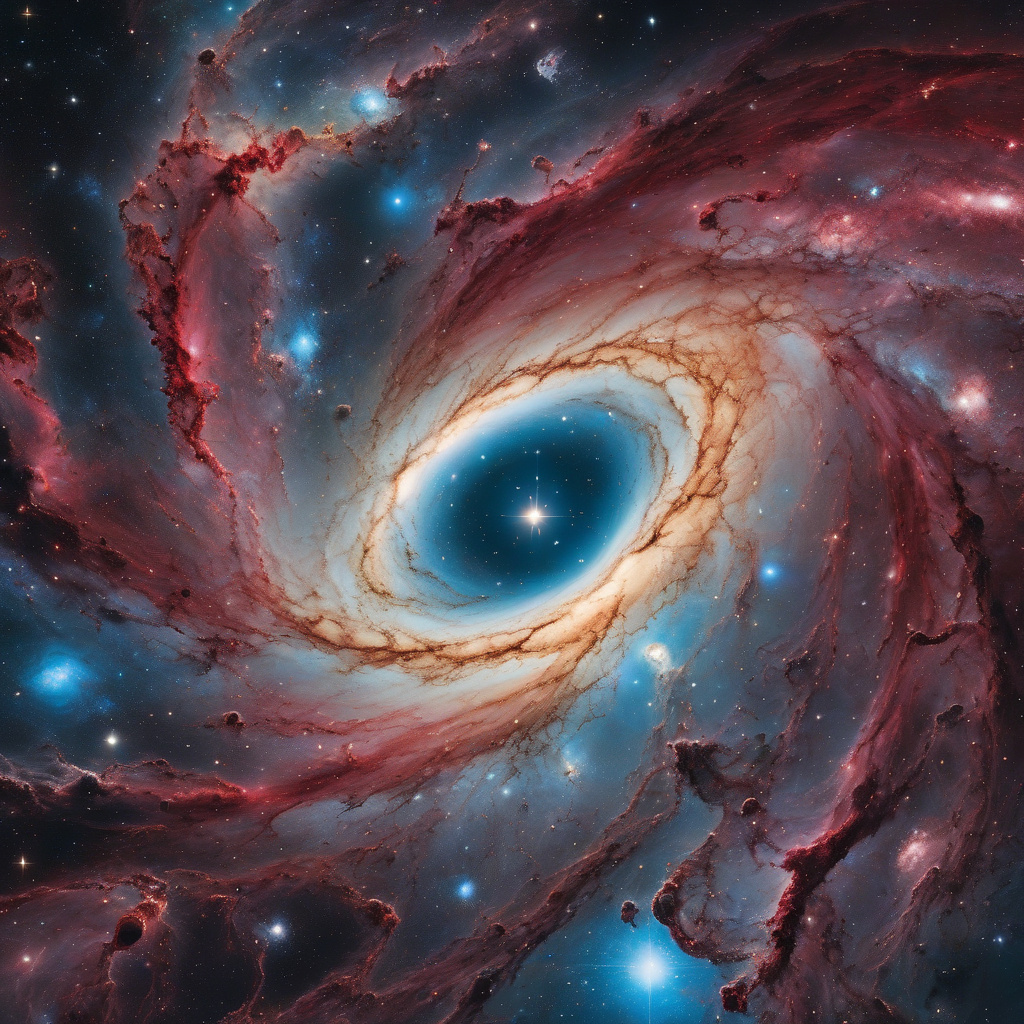Big Bang to Big Blink: Scientists Slash Universe’s Life from Eternity to Almost Nothing
Scientists have found that the universe’s decay rate is much faster than previously thought. A recent study published in the Journal of Astrophysics reveals groundbreaking findings that challenge our understanding of the cosmos. The research indicates that the universe, which was once believed to have an infinite lifespan, may actually be on a path towards rapid disintegration, ultimately leading to its demise in a relatively short timespan.
The conventional wisdom among scientists was that the universe’s expansion, set in motion by the Big Bang approximately 13.8 billion years ago, would continue indefinitely. However, new data suggests a different scenario. According to the study’s lead author, Dr. Emily Chen, “We used to think of the universe as a slow-burning candle, gradually fading away over trillions of years. But now, it appears more like a fireworks display, burning bright and fast before fizzling out.”
The key to this paradigm shift lies in the discovery of a previously unknown force dubbed “cosmic entropy.” This force, which accelerates the decay of matter and energy on a cosmic scale, is akin to a ticking time bomb within the fabric of space-time. As cosmic entropy exerts its influence, galaxies, stars, and even subatomic particles are gradually disintegrating at an alarming rate.
To put this into perspective, imagine the universe as a vast and intricate clockwork mechanism. Each celestial body, from the smallest asteroid to the largest galaxy, is a cog in this cosmic machine. With the revelation of cosmic entropy, scientists now realize that the clock is ticking much faster than they ever anticipated. What was once thought to be an eternal dance of stars and planets is now revealed to be a fleeting spectacle on the scale of cosmic time.
The implications of this discovery are profound. Not only does it challenge our fundamental understanding of the universe, but it also raises existential questions about our place within it. If the universe is indeed hurtling towards its demise at an accelerated pace, what does that mean for the future of humanity and life as we know it?
Some scientists argue that cosmic entropy may hold the key to unlocking new frontiers in physics and cosmology. By studying the mechanisms behind this force, we may gain insights into alternative theories of the universe’s ultimate fate. Could it be that the universe’s rapid decay is a prelude to a cosmic rebirth, a new cycle of creation and destruction on a scale beyond our current comprehension?
As we grapple with these profound questions, one thing is clear: the universe is a dynamic and ever-changing entity, full of mysteries yet to be unraveled. The journey from the Big Bang to the Big Blink may be shorter than we imagined, but it is no less awe-inspiring in its complexity and beauty.
In the face of cosmic entropy, we are reminded of our own impermanence and the fleeting nature of existence. And yet, in this realization, there is also a sense of wonder and possibility. For just as the stars fade and the galaxies wink out of sight, new horizons beckon, inviting us to explore the vast unknown of the cosmos.
So let us gaze up at the night sky with humility and curiosity, knowing that we are but fleeting specks in the grand tapestry of the universe. And as we ponder the mysteries of the cosmos, may we find solace in the enduring quest for knowledge and understanding that unites us all in the face of eternity.
#UniverseDecay, #CosmicEntropy, #BigBlink, #AstrophysicsDiscovery, #CosmicMysteries












